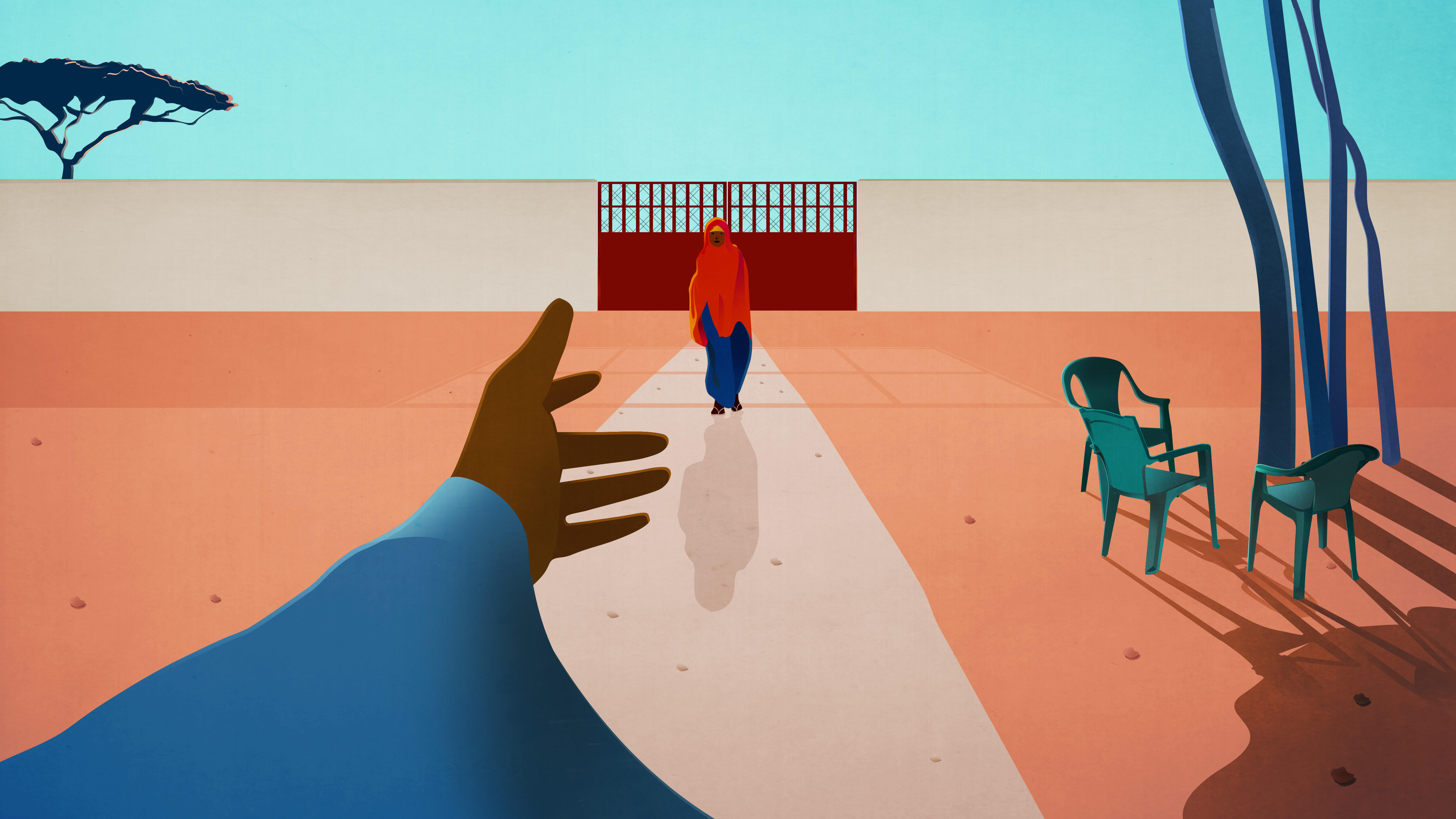
My name is Miriam. I was born in Somalia. My family fled the war in 1992 when I was one year old, and I have lived in Dadaab refugee camp—one of the largest in the world—since then.
Now, I work for the International Rescue Committee. Every day, I work to protect women and girls from violence.
6 am
The first thing I do is pray. I live with my mother. I make us both breakfast and then clean our home. My mother has always supported me. She encouraged my education as a young girl and is just so happy watching me go off to work every day.
7.30 am
I set off for the women's support centre. It’s quite a long walk and sometimes I get harassed on the street. Some people in the community think that I am wasting my time, that I should just get married. But I know others, including many young girls, look up to me as a role model.
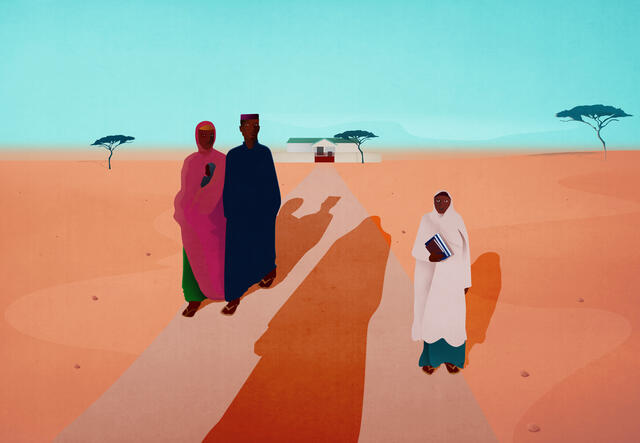
8 am
The team gathers outside under the trees for a daily meeting to discuss any challenges we have encountered in our work and ask each other for advice. Then I sit outside the centre and wait for women to arrive. I want mine to be the first face they see — someone smiling and welcoming them.
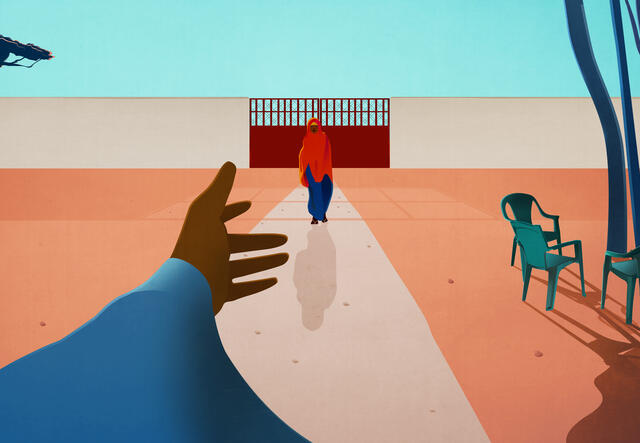
Women and girls come to the centre for many different reasons; the camp is not an easy place to live. There is a lot of domestic violence, early or forced marriages, girls are denied education, and there is sexual assault.
When a woman arrives I take her into a private room and ask her about her situation. If she is a survivor of sexual violence, I ask if she is willing to see a doctor and then immediately call them. We have a shortage of medical staff so it can be hours until someone arrives. Sometimes I end up staying with a survivor into the evening waiting for a medical exam.
12:30 pm
When the doctor arrives, I explain everything that is happening, act as a translator and assist as the doctor performs the exam and gives her treatments, including to prevent HIV.
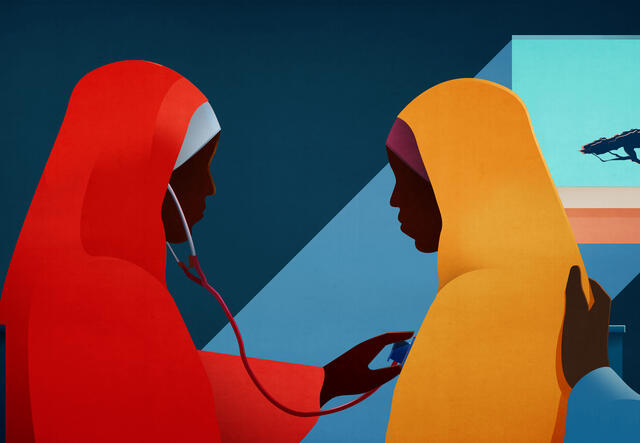
If she wants her case to be forwarded to the police, I help gather evidence, such as her clothes, and find her new, comfortable clothing. I reassure her that this is not her fault and that she is not alone, that I will be here to support her and listen.
4 pm
I start the walk home. To be honest, it is not an easy time of the day – my head is filled with the stories and experiences of the women I have seen and their suffering. It is heavy. When I get home, I prepare supper for my mother and myself. Sometimes I read – I love reading the news and fiction – but normally I try to get to sleep as early as possible.
I’m proud of what I do. Women come to see us traumatised, and scared, and sobbing. They leave knowing that they will be ok and that there are people who will help them and support them.
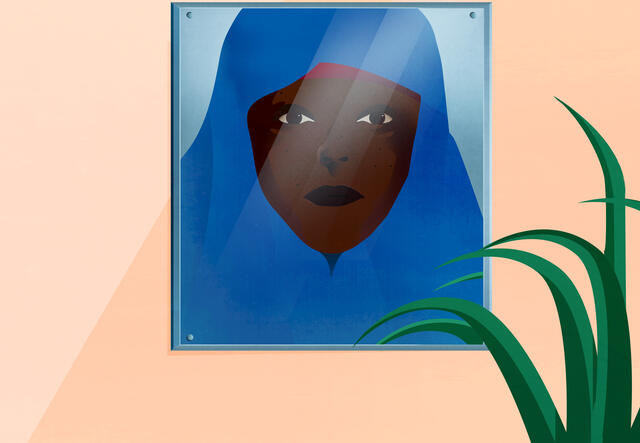
Violence against women and girls exists all over the world – not just in Somalia, not just here in Dadaab. If I go back to Somalia I want to continue to educate people and continue to protect women and girls. They are the backbone of humanity. The world cannot become beautiful without their leadership.
Miriam is a community worker working with the IRC’s Women’s Protection and Empowerment team to help women and girls who have experienced violence in Dadaab refugee camp in Kenya. She is also a refugee.
Miriam’s name has been changed to protect her identity. These are her words.
Illustrations by Matt Murphy.
The What Works to Prevent Violence Against Women and Girls in Conflict and Humanitarian Crises research programme, funded by the UK Government’s Department for International Development, is building evidence on how to prevent and respond to violence against women and girls in fragile and conflict settings. As part of its recent project in Dadaab, refugee community workers like Miriam were interviewed to understand the specific risks, challenges, opportunities and rewards experienced by refugees working to change their own communities.